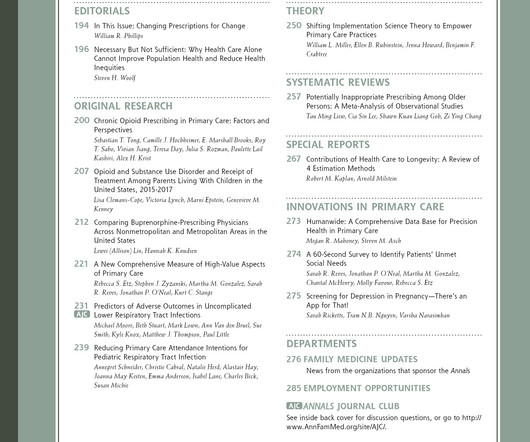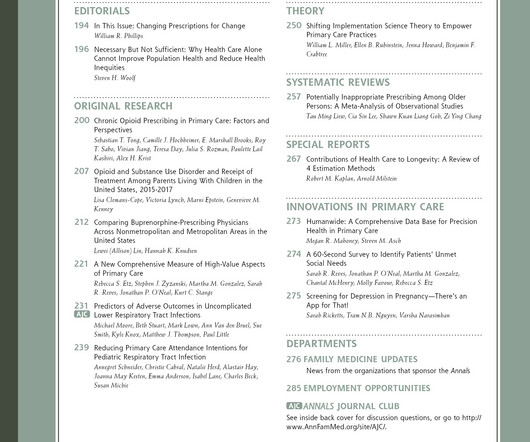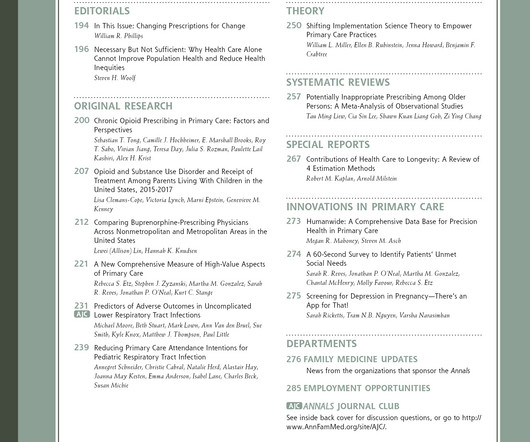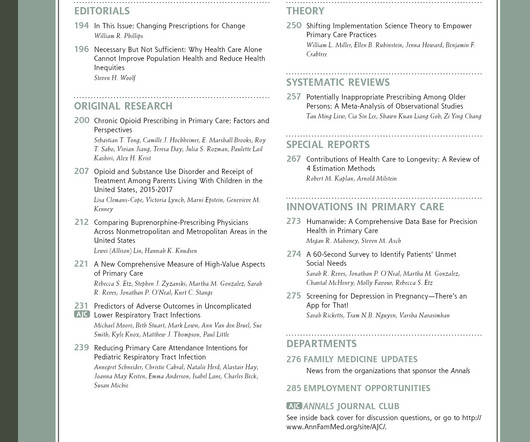Implementation and Uptake of the Virginia Mental Health Access Program [Child and adolescent health]
Annals of Family Medicine
NOVEMBER 20, 2024
Increasing access to primary care clinicians who are better able to screen and treat pediatric mental health conditions can improve mental health and reduce unnecessary ED visits. Clinicians receiving any support from VMAP tended to be female, <40 years old, and practiced in rural communities. vs. 47.4%, p<0.0001).

























Let's personalize your content